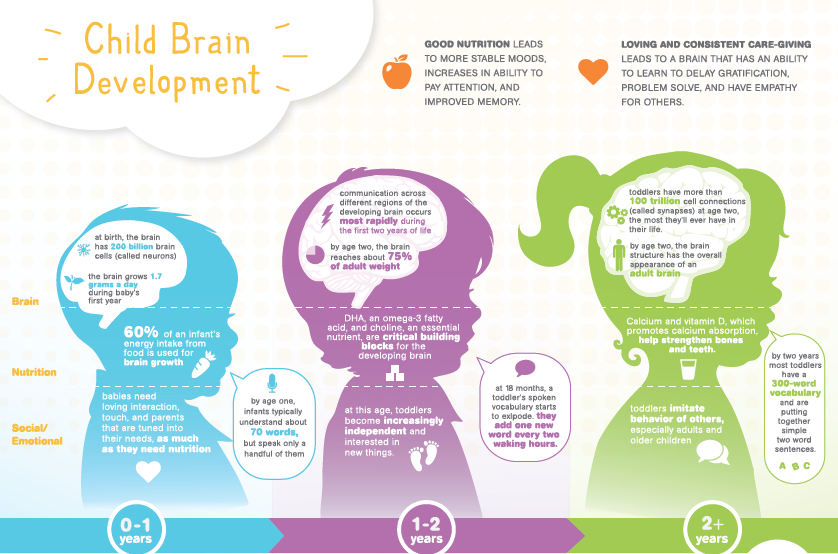
Watch: ‘How a child’s brain develops through early experiences’
NSPCC. March 2017
This NSPCC ‘Brain Builders’ video highlights how experiences in the first years of life affect how brains are formed. Without the right help, children can be at risk of a lifetime of health problems, developmental issues and addiction. The NSPCC suggests that everyone can take action to make sure that children overcome these stresses and have the nurturing experiences they need for positive development.
Studies show that investing in a child’s early development is crucial for their future health and wellbeing. Connections built in a child’s brain in the first years of life are the building blocks of their future, and for them to develop properly children need to be nourished and nurtured from pregnancy right through the early weeks, months, years and beyond.
Foetal brain development typically follows a predictable schedule, with the nervous system, or the baby’s brain and spinal cord, one of the first systems to develop.
Nurturing baby brain development starts in pregnancy, and the following lifestyle choices and tips can support healthy development:
- Eating a healthy diet
- Talking to the baby
- Exercising
- Avoiding consuming alcohol or smoking
- Managing stress
- Avoiding prolonged exposure to airborne toxins
- Listening to music

Read: ‘Grow my brain gives babies the best start in life‘.
https://www.medway.nhs.uk
Read this short article to discover how health workers at Medway NHS Foundation Trust helped to raise awareness of the importance of bonding with babies in the womb. As you do, you should reflect on the the ways in which you can act in positive ways to support the brain development of babies and young children you encounter.
Further Resources








